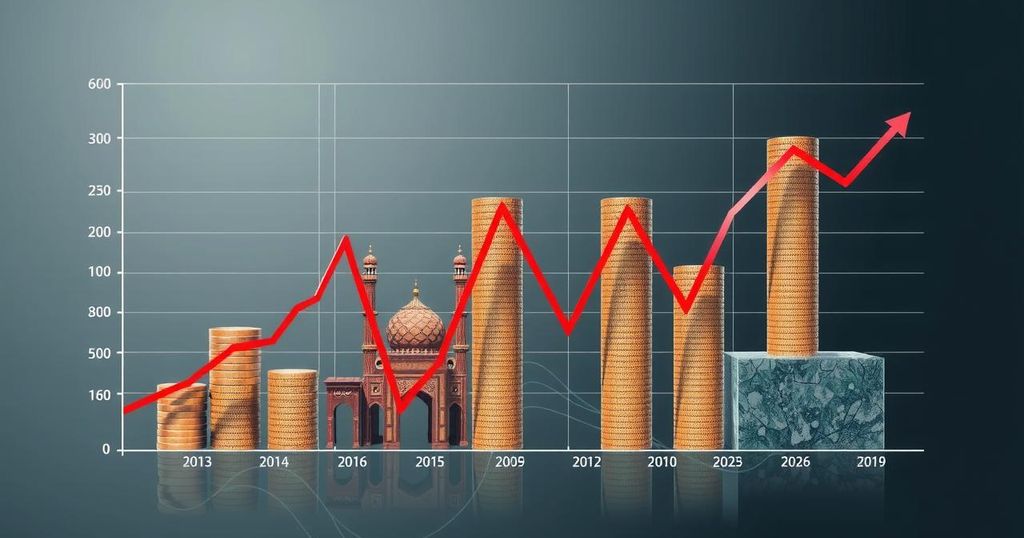In 2024, Pakistan experienced a notable decline in inflation rates from 38% to 4.9%. Despite this positive shift, prices continue to rise at a slower pace, posing ongoing challenges, particularly with a poverty rate of 40.5%. The State Bank of Pakistan’s interest rate adjustments have played a key role in this context, yet the implications for daily life remain complex and far from optimistic.
In 2024, Pakistan navigates a complex economic landscape marked by notable fluctuations in inflation rates. Following a staggering inflation rate of 38% in May 2023, the country experienced a significant decline to 4.9% in the early months of 2024. This decline, while viewed as progress, may not result in tangible relief for consumers as prices continue to rise, albeit at a slower pace. The State Bank of Pakistan (SBP) responded to the dire economic conditions by raising interest rates, which peaked at 22% in June 2023. However, by mid-2024, the SBP commenced its first interest rate reduction in four years, cutting the rate to 20.5% in response to a slowdown in inflation rates to a 30-month low of 11.8% in May.
Despite these positive indicators, societal challenges persist. The World Bank reports a poverty rate of 40.5%, indicating that approximately 2.6 million Pakistanis have fallen below the poverty line. A troubling gender equity standing further compounds the situation, with Pakistan ranking 142 out of 146 countries in the World Economic Forum’s gender report.
The phenomenon of disinflation is crucial to understanding the economic climate. While the rate of inflation is decreasing, prices are still on the rise. This distinction is important, as Miftah Ismail, a former finance minister, emphasized, “You have to understand that price levels have not gone down, inflation has gone down which only means that the rate at which prices were increasing has fallen.” Thus, while inflation may taper off, the cost of living remains high.
Rising fuel prices, currency devaluation, and the impact of global events, including the Ukraine war, have contributed heavily to the 2023 inflation spike. As rates later stabilized due to international commodity price fluctuations and the IMF agreement, the SBP’s restrictive monetary policy began to yield results. This was corroborated by economic analysts who noted that reduced demand, alongside tightening fiscal measures, has played a part in bringing inflation rates down.
Looking toward the future, the IMF cautions against complacency, reminding policymakers to remain vigilant. Economists suggest that unless significant reforms are undertaken, inflation will likely remain a persistent issue. The government’s approach must focus on enhancement of economic activity and creation of income opportunities in order to genuinely improve the purchasing power of the populace. The next two years are critical for ensuring sustainable recovery and stability in Pakistan’s economic framework.
In 2023 and early 2024, Pakistan’s economy underwent significant turbulence characterized by record-high inflation rates. Following an IMF bailout, financial authorities implemented stringent measures to combat soaring prices. TheSBP’s adjustments to interest rates were pivotal in shaping the inflation trajectory. Understanding this context is essential for analyzing Pakistan’s current position amidst ongoing challenges including poverty rates, gender disparity, and the broader economic landscape influenced by global events and domestic policies.
The decline in inflation rates in Pakistan reflects a complex interplay of economic factors. While the current trend may indicate stabilization, it does not alleviate the financial burdens faced by the populace. Addressing systemic issues such as poverty and gender inequality remains vital for fostering a resilient economic environment. Policymakers are urged to pursue strategies that stimulate growth and enhance the overall quality of life for citizens moving forward.
Original Source: www.dawn.com






